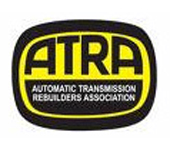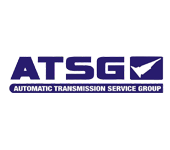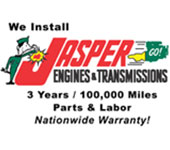817-446-7295 or 682-321-7117 | 2921 S Cooper St #101 Arlington, TX 76015
AUTONET TV
Archive for July 2023Straight Ahead (Wheel Alignment)Posted July 30, 2023 10:52 AMIf every road was straight and smooth, we wouldn't have to worry much about wheel alignment. But they're not, so we do. Hitting potholes or driving on rough pavement can knock your vehicle out of alignment and you'll notice it in one of several ways. Your steering wheel may not be centered when you're driving straight ahead, or your vehicle may pull to one side. You may find your tires wearing on one side or they may squeal. All are signs that could point to you needing an alignment. Your wheels should be perpendicular to the road and parallel with each other. If not, your tires will wear out faster and your vehicle won't go straight on a level straightaway. In alignment, there are several factors that must be checked. One is camber. Your wheels should be straight up and down if you look at them from the front. If not, you'll wear your tires unevenly on one side. Another factor is caster, the angle of the steering pivot. Most vehicles have what's called positive caster, when the top of the steering pivot leans toward the rear. Proper caster balances steering effort, stability on the highway and cornering. You may have heard the term "toe" in reference to your wheels. If you looked at your front wheels from straight above, for example, imagine your wheels were your feet. If you were to turn your toes in toward each other, that would be toeing in. The toe of your vehicle should be set to manufacturer's specifications so your vehicle handles well and doesn't prematurely wear out tires. It's a good idea to have your alignment checked periodically since it can get knocked out by one hard knock or a lot of little knocks. It's not just about tire wear, it's about ride comfort and safe handling. You may say a vehicle aligned just feels divine.
I NEED All Wheel Drive (Pros and Cons of AWD)Posted July 23, 2023 10:06 AMSo winter has arrived and you don't feel confident in how your 2-wheel drive vehicle does in the snow and ice. You envy all those people with all-wheel-drive (AWD) and 4-wheel-drive (4WD) cars, trucks and SUVs. You start thinking, "I need one of those. I'll be able to go anywhere without any worries." The truth is there might be another option for you that you might not have thought of. Sure, you've seen the ads that tout the advantages of AWD and 4WD, and some of the videos make it look like they can handle everything Mother Nature can throw their way. The truth, though, is that vehicles with drive wheels at all four corners can't stop any more quickly than those with 2-wheel-drive. Yes, AWD and 4WD vehicle have advantages when it comes to acceleration, but when it comes to stopping and handling, they generally don't. If you buy a new AWD or 4WD vehicle, you are going to spend thousands of dollars. Maintenance and upkeep costs are higher due to the vehicle's increased complexity and weight, and you're likely to take a hit in fuel economy. So, what's the option we mentioned above? It's simple. Winter tires. If you have a front-wheel-drive (FWD) vehicle with winter tires, you'll notice a tremendous difference in your winter traction and stopping than the all-season tires that are on most vehicles. One tire company, Michelin, wanted to find out which was better in the snow: an AWD car with all-season tires or a FWD car with winter tires. And they found while the AWD car could get going a little more easily, in most of the other comparisons, the FWD car with winter tires handled equally or better and stopped in a shorter distance. The optimal combination would be, of course, AWD or 4WD with winter tires. But one major consumer testing magazine found that only about 12 percent of their subscribers who drove AWD or 4WD vehicle in the snow for more than 6 days in the previous winter even used winter tires! So a set of winter tires may give you the handling and stopping you're looking for and for a lot less cash than a new AWD vehicle. Consult your service advisor for some recommendations. You may be pleasantly surprised at how you can handle winter roads without having to handle a new, big, fat monthly payment for a new vehicle. Westmoreland Transmissions Not-So-Smooth Operator (Transmission Signs of Trouble)Posted July 2, 2023 11:29 AMYou are heading down a flat, newly paved street when all of a sudden you feel it. Your vehicle jumps a little bit when you're accelerating and changing gears. You know it's not the surface of the road because it's smooth as silk. So what did you just feel? That kind of jumping—or grinding or slipping—during gear changes could be a sign of trouble in your automatic transmission. And it's important to get it checked out fairly soon because some transmission problems that aren't fixed early can lead to more involved and expensive repairs. By far most vehicles on the road in North America have automatic transmissions, and they are workhorses. Unlike early cars with balky, hard-to-shift manual transmissions, the latest automatics allow you to drive without having to even think about gear changes. But you should know about a few signs of trouble to look for if they ever start showing up.
If you do, these are worth getting checked out at our service center. When automatic transmissions start to show signs of wear and age, it can be because of a number of reasons. They can be caused by your transmission fluid getting old and contaminated, or its level may be low. The gears can be worn. You may have a leak somewhere in your transmission. Or transmission problems might be caused by a computer problem. Transmission issues aren't always expensive to repair. Sometimes there may be a leak in a hose or gasket. Or a computer needs to be reset. Other issues may be much more involved. This is why it's important to get your vehicle checked out when you do notice something doesn't feel, look, shift or smell quite right. Everyone wants their automatic transmission to be a smooth operator. Westmoreland Transmissions | ||
SearchArchiveApril 2018 (16)May 2018 (5) June 2018 (4) July 2018 (5) August 2018 (4) September 2018 (5) October 2018 (4) November 2018 (4) December 2018 (5) January 2019 (5) February 2019 (4) March 2019 (5) April 2019 (4) May 2019 (4) June 2019 (5) July 2019 (4) August 2019 (4) September 2019 (5) October 2019 (4) November 2019 (4) December 2019 (5) January 2020 (5) February 2020 (4) March 2020 (5) April 2020 (4) May 2020 (5) June 2020 (4) July 2020 (4) August 2020 (5) September 2020 (4) October 2020 (4) November 2020 (5) December 2020 (4) January 2021 (6) February 2021 (4) March 2021 (4) April 2021 (4) May 2021 (5) June 2021 (4) July 2021 (4) August 2021 (5) September 2021 (4) October 2021 (5) November 2021 (4) December 2021 (4) January 2022 (6) February 2022 (4) March 2022 (4) April 2022 (4) May 2022 (5) June 2022 (4) July 2022 (5) August 2022 (4) September 2022 (4) October 2022 (5) November 2022 (4) December 2022 (4) January 2023 (5) February 2023 (4) March 2023 (4) April 2023 (5) May 2023 (4) June 2023 (4) July 2023 (5) August 2023 (4) September 2023 (4) October 2023 (5) November 2023 (4) December 2023 (4) January 2024 (5) February 2024 (4) March 2024 (5) April 2024 (4) May 2024 (4) June 2024 (5) July 2024 (4) August 2024 (4) September 2024 (5) October 2024 (4) November 2024 (4) December 2024 (5) January 2025 (4) February 2025 (4) March 2025 (5) April 2025 (4) May 2025 (4) June 2025 (5) | CategoriesWhat Customers Should Know (46)Battery Replacement (1)Steering (7)Maintenance (8)Fuel Economy (4)Keys to a long lasting vehicle (2)Check Engine Light (2)Air Conditioning (9)Battery (10)Tires and Wheels (3)Auto Safety (4)Transmission (3)Alternator (2)Fuel Saving Tip: Slow Down (2)Shocks & Struts (3)Fluids (2)Automotive News (1)Winter Prep (2)Brakes (12)Older Vehicles (1)Cooling System (4)Service Intervals (1)Drive Train (2)Oil Change (5)Service Standards (1)Windshield Wipers (2)Headlamps (2)Winter Tires (1)Exhaust (5)Customer Detective Work (1)Fuel System (1)Tires (7)Alignment (4)Tire Rotation and Balancing (2)Transfer Case Service (1)Suspension (1)PCV Valve (1)Safety (2)TPMS (1)Inspection (2)Timing Belt (2)Shocks and Struts (2)Brake Service (2)Spark Plugs (1) | |
coupons
HOLIDAY SPECIAL
4L60E With Torque Converter
view coupon
Carry Out - Normal Price $1,600
Carry Out ? Holiday Price $1,400
Testimonials
Eric Nicks, 05/21/2025
Bob was a very nice man and definitely knowledgeable about rebuilding transmissions. He rebuilt my f250 7.3 with 275K miles on it . Brought it in a two days later truck was done running again like new. He told me to drive it like you stole it and come back in another 300k miles. It’s been over two years and 100k miles and transmission runs like new. Definitely recommend..The guy working in the shop was a very nice guy also. Keep up the great customer service! 😃














